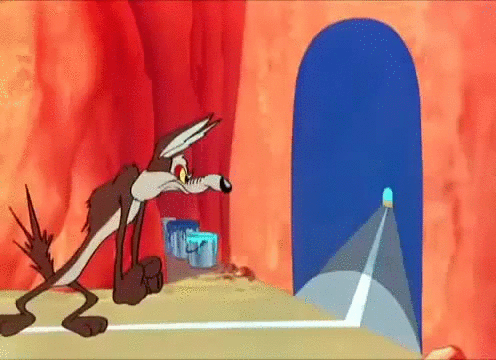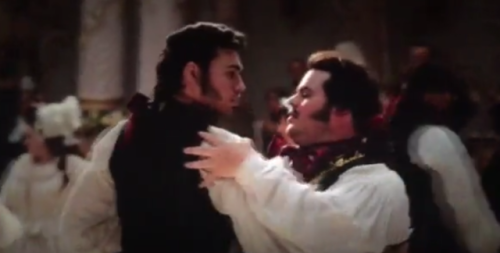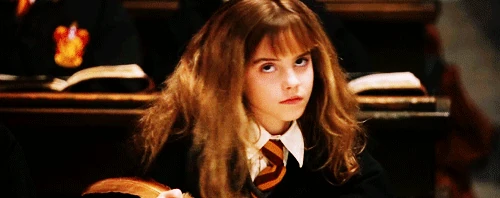TL;DR - Let's stop the threats, especially those of a physical/violent undertone towards any queen. The world is a fucked up place and representation is important.
More words:
I was rewatching the RuPaul's Drag Race All Stars 4 season finale, and some things kind of clicked together. (Titles hereby abbrev'ed RPDR and AS4.) (Shout out to the Vulture episode recaps by Matt Rogers, and to Alaska & William's podcast Race Chaser. Both helped my brain cauldron boil and bubble toil and trouble on this. Also, Big Mouth. That's a great show.)
Beyond anyone's feelings about the winner(s) of any season, beyond which girl got the "bad" edit, etc etc. I want to talk about how the show, and especially the finale of AS4, really changed the game with editing and production choices. And to those of you saying, "it's only better because the budget's bigger, RPDR is representative of problematic consumerist constructs," I hear you. That's also a valid and useful discussion to have. It's just not the part of the soapbox I happen to be standing on right now. I'm happy to listen if people have things they want to say about it, though. This is an interactive, big soapbox. Get on up here.
One of the main things that clicked for me during the AS4 season finale rewatch was the change in sponsorship for the show. Yes, there's still money flowing in, but it's from different businesses. There's no more alcohol brand sponsors. (Absolute Vodka in the earlier seasons.) The queens in later seasons are limited to one drink each during Untucked, as opposed to all the available drinks in earlier seasons of Untucked. It's not the sponsor itself that's problematic (I love me a berry acai absolut vodka). It's the atmosphere around the sponsor that was problematic. It's the shade rattles, the editing cuts that show queens drinking in response to another queen's statement, comment, or question. Drinking isn't discourse. For the viewing audience, it becomes a message: when these queens are hanging out together, "untucked," aka as close as one can get on reality TV to an "authentic" representation of themselves, inebriation is a part of that. Ostensibly, even when the queens are hanging out with each other, within a community where they should have lots of similarities, conversation can't happen without an outside social crutch (in this case, alcohol). That's what's problematic.
When queens in earlier seasons finish their cocktail dregs and there's conversations happening? The edit picks the moments when the queens are picking on each other. It's queen against queen; the competition is what's important. Both on the main show and in Untucked. Arguments are loud, commentary in the talking head segments are often related to the arguments, there's two different rooms in Untucked for queens to separate into. Arguments tend to conclude with physical encroachment into the queens space, either by another queen or by the camera. Again, it's not the arguments specifically that are the problem (Shangela's Sugar Daddy tirade forever be in our hearts). It's the repetitive nature of the edit to focus on the arguments, and how it paints the relationships between the queens as contentious.
Slowly, through the course of the seasons, the overall edits, design choices, background music, etc have been changing to reflect the more positive aspects of being a queen. There's still drinks, but only one per queen during Untucked (and, most notably on season 7, conversations with queens who are sober and choosing not to drink). If drinks are brought into the workroom, it's also one per queen and it's for a celebratory occasion (like the previous AS queens coming in for some kiki before the AS4 finale), as opposed to marking the beginning of a new day (when the pit crew used to bring in trays of drinks). That's another really subtle but important change. The drinks are staged before a segment, then the queens pick up their own drinks, or hand them out to each other. Nobody is bringing in the overt obligation that drinking is expected as part of being a queen.
For some reason, the brightness of the background really stood out to me during the rewatch of AS4. The work room is freaking pink. Bright, shiny, glittery pink. The honeycomb behind the judges table - that aqua and pink. It's very visually engaging. If a viewer was flipping channels, those color choices are going to stand out. Maybe make a person pause and take notice, even before they have a chance to understand the concept of the show. Let's say, for arguments sake, that person flipping channels is a young, queer teen who's been told their very existence is wrong. Whether by their parents, their religious community, people at their school (like so much else, it doesn't matter who's relayed this message to this kid, it matters and is fucking horrible that it's been relayed at all). On the other hand, let's say the channel flipper is somebody who 100% would never stop on a program like RPDR. Somebody who has a lot of antiquated and problematic viewpoints about gender representation, the imbalance of the mental workload, or the historical implications of systemic racism. Being that RPDR is up on the networks now, and therefore more accessible if people have "general" cable packages, the move to brighter colors is a great attention grabber. Bring em in, Mama Ru.
Speaking of Mama Ru, let's talk about those minimal work room walk-throughs. Ru does them every episode, but they've been televised less. To me, I see this as Ru metaphorically pushing the girls, and us as viewers, out of the nest. Ru's set up the ground work, incubated our metaphorical life eggs. Now it's time for the queens, and us, to start doing some work on our own. But how do we even get started? Here's some things I picked up from the AS4 finale. Share your thoughts if you've got them.
I noticed the edits focusing on positive, gentle, and quiet moments more so. When Monet and Monique are sitting on the couch talking about the possibility of a highly melanated top 2, and they reach across the couch to hold hands. For a brief second, the camera zooms in on that moment. It's an amazingly subtle message that holding hands or other gentle physical contact is okay, that it can be an important part of connection to another person.
Auditory choices also. I had a tough time with the podcast section first time though. I'm a late GenXer, borderline Millennial. "Podcasts are for listening! I'm watching TV right now!" And then I shook my old person fist up at the sky à la Grandpa Simpson. But on the rewatch, especially with the context of all the other quiet, gentle moments happening, it made more sense. The podcast section is about talking and listening. The lights are dimmed on the main stage, there's stationary mics that are better at picking up voices (as opposed to the rattly, usually under fabric body mics the queens usually have on). Monique's story especially in this segment is so powerful. It's not that she was 300 pounds that was the problem, ultimately. Similarly to the drinks and the edits, it's not the thing itself that's problematic. It's the culture and the feelings around the thing that cause problems. It's not that Monique was in an ex-gay program. The main problem was she wasn't happy.
Last thought. Let's talk about happiness. Matt Rogers in the Vogue recap mentions Trinity's laugh. Alaska and Willam talk about Trinity's laugh on their podcast. Monet literally laughs at everything. And most importantly, the laughter's left in through the edits. Laughter, and happiness generally, has become a bigger focus on RPDR. Yes, the show's still competition based. Like everything else, competition in and of itself isn't the problem.
Let's help this narrative change. Let's STOP belittling, shaming, and, above all else, threatening violence on queens from the show or on each other. Think about that young queer kid finally finding community. In a space in which they should be able to feel comfortable and be themselves, let's not throw the familiar message of wrongness at them. Let's not support that other channel surfer's moldy arguments and gross stereotypes by projecting a community that's so ashamed of itself we'll attack our own. If we can't love ourselves, how in the hell we gonna love anybody else?













